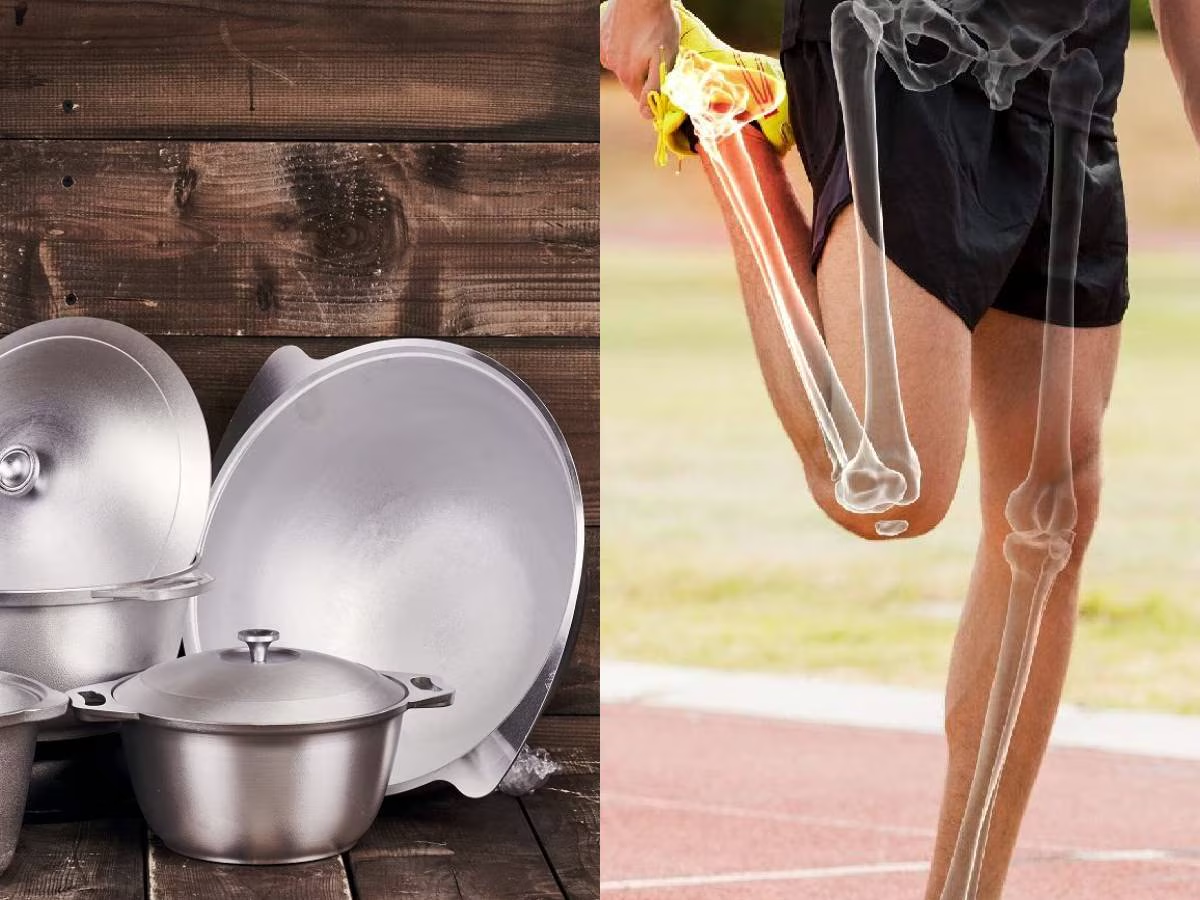
In many Indian households, aluminium utensils are commonly used for cooking due to their affordability and good heat conductivity. However, few are aware of the potential health risks associated with cooking in these utensils. While aluminium may seem like a practical choice, experts warn that cooking food in aluminium can have adverse effects on health.

Health Risks of Cooking in Aluminium Utensils
Aluminium is a lightweight metal and an excellent conductor of heat, which makes it a popular choice for cooking. However, there are concerns about its impact on health. Aluminium is derived from bauxite, and Ayurveda suggests that it can absorb essential nutrients like iron and calcium from food. Over time, consuming food cooked in aluminium utensils may weaken bones and affect the liver and nervous system.
Additionally, cooking food in aluminium pressure cookers can lead to a reduction in the food's nutritional value. The exposure to aluminium may also pose a risk for long-term health problems if it accumulates in the body.
The Best Alternatives for Cooking Utensils
If aluminium is not the best choice for cooking, you might wonder which materials are safer. Here are some recommended options:
Brass Pots
Cooking in brass utensils is a healthier alternative. Brass is rich in zinc, which has several health benefits, including boosting blood count and supporting immune function.
- Respiratory Benefits: Brass utensils are particularly beneficial for individuals with respiratory conditions like asthma. Cooking in brass can help alleviate symptoms and improve lung health.
- Boosts Immunity: Drinking water stored in a brass vessel overnight and consuming it in the morning can strengthen your immune system, promoting overall well-being.
Things to Avoid Cooking in Brass
While brass utensils are highly beneficial, they should not be used for cooking acidic foods. Over time, a layer of oxide can form on the surface of brass utensils, which may react with acidic substances like tomatoes, vinegar, or lemon. This reaction can affect both the taste and safety of the food.
Conclusion
While aluminium utensils are common in kitchens due to their affordability and convenience, they can have negative effects on health, particularly with prolonged use. Brass utensils, on the other hand, offer numerous health benefits and are a safer alternative. However, it is important to avoid cooking acidic foods in brass to prevent any harmful reactions.
Disclaimer: This information is shared for general awareness. Please consult a healthcare professional or expert for personalized advice regarding cooking utensils and their impact on health.






